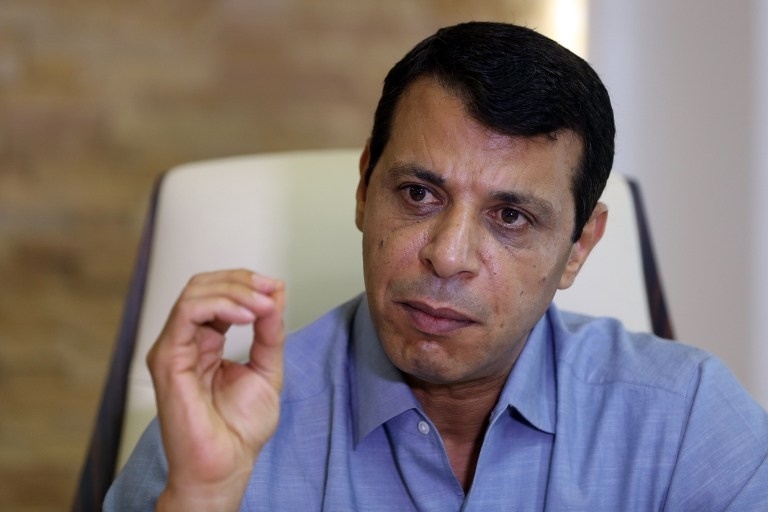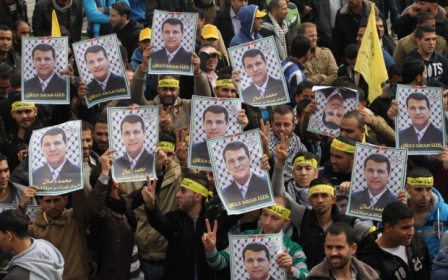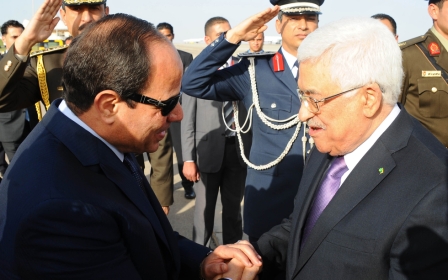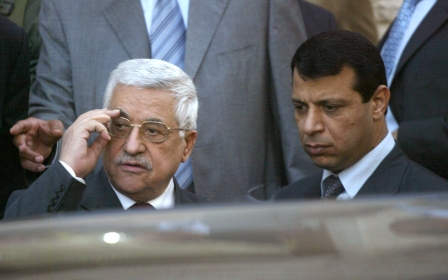Exiled Abbas rival sentenced to three years in absentia over corruption

An exiled rival to Palestinian president Mahmoud Abbas was sentenced in absentia to three years in prison Wednesday on corruption charges, his lawyer said.
A lawyer for Mohammed Dahlan condemned the sentencing as part of Abbas's attempts to sideline political rivals.
Dahlan, 55, "was sentenced to three years in prison and ordered to pay back $16 million" (15 million euros), lawyer Salameh Halaseh told AFP by phone.
Halaseh said the defence had only been informed of the hearing, held in an anti-corruption court in Ramallah in the occupied West Bank, on Tuesday.
Dahlan was expelled from Abbas's Fatah party in 2011 and now lives in exile in the United Arab Emirates.
Sevag Torossian, another lawyer for Dahlan, called the conviction a "cleansing exercise" for Abbas, who has sought to sideline perceived rivals in Fatah.
Dahlan, who has urged 81-year-old Abbas to step down, is believed to have the support of a number of Arab countries.
The conviction came two days after Abbas lifted the immunity of five members of the Palestinian parliament, including Dahlan, opening them up to prosecution.
The other four are alleged to be allied to Dahlan.
Torossian said the case had been going on for years but the charges were struck down in 2015 when a Palestinian court ruled he was immune from prosecution as a parliamentarian.
But last month, the Palestinian Constitutional Court ruled that Abbas has the authority to revoke immunity without the consent of parliament.
On Wednesday, a coalition of Palestinian human rights organisations criticised the lifting of immunity for the five lawmakers.
"Parliamentary immunity is one of the most important constitutional principles," the Council of Palestinian Human Rights Organisations said in a statement, calling its lifting "an act of aggression against the popular will".
The statement also warned of the potential "collapse of the entire political system and disappearance of basic law".
The full Palestinian Legislative Council has not met since a split between Fatah and Hamas in 2007, but the members are still in theory immune from prosecution.
New MEE newsletter: Jerusalem Dispatch
Sign up to get the latest insights and analysis on Israel-Palestine, alongside Turkey Unpacked and other MEE newsletters
Middle East Eye delivers independent and unrivalled coverage and analysis of the Middle East, North Africa and beyond. To learn more about republishing this content and the associated fees, please fill out this form. More about MEE can be found here.




